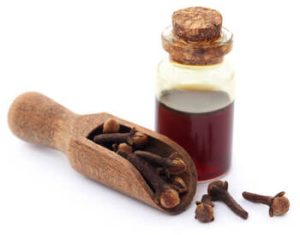For ages, the distinct aroma of cloves has wafted through various cultures, not just as a culinary delight but also as a beacon of relief for various ailments. Derived from the clove tree, one of its most notable uses has been in dental care, particularly in relieving toothaches. Eugenol, the active ingredient in clove, boasts anti-inflammatory properties, making it an age-old natural remedy. As a result, clove oil, especially when paired with carrier oils like coconut oil, has become a staple in many home remedies to alleviate tooth pain.
By applying a few drops of clove oil using a cotton swab to the affected area, individuals have found temporary relief from agonising dental discomforts. But how does clove essential oil achieve this feat? And what are the nuances to consider while using clove oil for optimal results?
This guide delves into the intricacies of using clove oil for toothaches, shedding light on its medicinal history and offering practical insights for contemporary use. Join us on this journey as we uncover the potency and versatility of this ancient elixir.
Background: Understanding Toothaches
Toothaches can be incredibly debilitating, casting a cloud over life’s simplest joys. Their causes are varied, from tooth decay, inflammation of the gums, or complications from extracted molars. The symptoms, too, are diverse. Some experience a dull, lingering pain; for others, it might manifest as acute sensitivity or swelling.
Amidst dental treatments, clove oil has etched its mark as an effective natural toothache remedy. Sourced from the revered clove tree, this essential oil, enriched with eugenol, has stood the test of time. Clove oil has been a go-to home remedy, especially when blended with carrier oils such as coconut or olive oil.
Many have found temporary relief by placing a few drops of this mixture on a cotton swab and gently dabbing the affected area. This doesn’t replace the need for professional dental care but offers a natural respite. With its myriad benefits, it’s no wonder clove oil for toothaches remains a household favourite. However, it’s paramount to address the root of the tooth pain with a dentist, ensuring holistic health.
The Clove Tree and Its Significance
The clove tree, a majestic evergreen native to the Spice Islands of Indonesia, has left an indelible mark on global traditions and remedies. Characterised by its pyramid-shaped crown and clusters of aromatic flower buds – the cloves – this tree is more than just a source of spice.
For ages, different cultures have revered cloves. Whether the ancient Egyptians used it for embalming or the Chinese emperors demanded it for freshening breath, cloves have been an integral part of historical narratives. When discussing its medicinal prowess, clove oil, derived from these precious buds, emerges as a beacon of natural healing. Renowned for its analgesic properties, clove oil has been the cornerstone of many home remedies. From the ardent believer of essential oils to the common individual troubled by tooth pain, many have found solace using clove oil mixed with carrier oils like coconut oil.
Its role in dental care is particularly noteworthy. Clove oil for toothaches has been a well-documented and time-honoured solution. A simple application on the affected tooth can provide temporary relief thanks to eugenol, its active ingredient.
As we journey through the annals of time, it becomes evident that the clove tree isn’t just a source of aromatic delight; it’s a bridge connecting culinary worlds, ancient remedies, and modern-day natural treatments.
Chemical Composition of Clove Oil
Derived from the fragrant buds of the clove tree, clove oil has long been an emblem of nature’s curative powers. The journey from the tree to the bottle is of care and precision. Through steam distillation, where whole cloves are treated with steam, the essential oil separates, preserving its myriad beneficial compounds.
The hallmark of clove oil’s therapeutic profile is eugenol, a significant portion of the oil. Eugenol’s attributes, particularly its anti-inflammatory and analgesic effects, make clove oil a standout remedy for dental woes, especially tooth pain. But the richness of clove oil doesn’t stop at eugenol. It’s a concoction of chemical compounds such as caryophyllene, vanillin, and humulene, each adding to the oil’s diverse therapeutic potential.
While many know clove oil for toothaches, its repertoire in traditional medicine is expansive. Various ancient traditions have revered clove oil for dental care and respiratory, digestive, and skin-related ailments. The oil’s potent antimicrobial and anti-inflammatory properties make it a favoured ingredient in many home remedies, aiding pain relief and reducing inflammation.
As the shift towards organic and natural treatments becomes pronounced, clove essential oil emerges as a cornerstone. Its therapeutic spectrum is undeniably vast, whether it’s a few drops on a cotton ball to alleviate a throbbing toothache or blending it with carrier oils like coconut or olive oil for broader applications. Yet, it’s always wise to approach its use with knowledge and seek expert advice when in doubt.
Mechanism of Action: How Clove Oil Alleviates Pain
Delving into the world of essential oils, clove oil stands out as a champion, especially in dental care and pain relief. But what renders clove oil its powerful pain-alleviating properties?
Central to the efficacy of clove oil is eugenol, a compound that acts on nerve endings to produce a numbing effect. For anyone who’s ever experienced the throbbing anguish of a toothache, applying clove oil, especially when done using a cotton ball, can be a saving grace. Eugenol offers a shield, temporarily blocking pain signals and providing respite.
However, the benefits of clove oil don’t halt at numbing. The oil is packed with anti-inflammatory agents that tackle swelling and inflammation – common culprits behind tooth pain. Whether the pain stems from tooth decay, third molars, or any other dental issue, the anti-inflammatory properties of clove oil can ease pain and soothe the affected area.
Complementing these properties are the antibacterial qualities of clove oil. A healthy mouth is crucial for overall health; oral infections can be painful and detrimental. Clove oil helps ward off such bacterial intrusions, promoting a cleaner and healthier oral environment.
To summarise, using clove oil for toothaches is more than just a home remedy passed down through generations. It’s a testament to nature’s ability to heal, supported by the intricate chemistry of the clove tree and its powerful buds. Whether in pure form or mixed with carrier oils, its therapeutic range offers solace to many.
How to Use Clove Oil for Toothaches
The ancient remedy of using clove oil for toothaches is not just folklore but a scientifically backed practice. Yet, to derive its maximum benefits, one needs to employ it correctly and safely.
Always prioritise therapeutic-grade clove oil when making a purchase. This ensures you obtain a high-quality product, which is crucial for efficacy and safety.
Step-by-Step Guide to Using Clove Oil:
Prep for Application: Soak a cotton ball or swab in the mixture once diluted.
Targeted Application: Press the soaked cotton gently against the affected tooth or gum. This direct application ensures that the eugenol in the clove oil acts precisely where it’s needed, providing temporary pain relief.
Clean Up: After a few minutes, rinse the mouth with warm water to avoid any potential irritation from residual oil.
The magic behind clove oil’s pain-relieving properties is its rich eugenol content. This compound numbs the pain and reduces inflammation, offering a dual-action remedy. Additionally, clove oil’s antibacterial nature means it not only soothes but also addresses potential infections causing the pain.
Safety Measures and Side Effects to Keep in Mind:
Always test a small area inside the mouth before a full application to ensure no adverse reaction.
Avoid swallowing the oil, and keep it away from children’s reach.
It’s wise to consult with a doctor before employing clove oil for those with existing health conditions, especially liver-related issues.
Should you notice any signs of irritation, swelling, or worsening pain, it’s crucial to stop its use and consult a dentist.
To conclude, clove oil, when used rightly, can be a beacon of relief for those grappling with tooth pain. But, like all remedies, a knowledgeable and cautious approach ensures the best outcomes.
Comparative Analysis: Clove Oil vs. Over-the-Counter Pain Relievers
In the world of toothache remedies, where does the age-old clove oil stand when juxtaposed with contemporary over-the-counter solutions?
Advantages of Clove Oil:
- Organic Solution: Derived from the buds of cloves, clove oil presents a holistic way to tackle tooth pain. Its natural origin means fewer synthetic ingredients and additives.
- Comprehensive Relief: Beyond just numbing the pain, clove oil’s anti-inflammatory and antibacterial properties can address inflammation and potential bacterial causes of dental pain.
Limitations when Compared to Modern Medicine:
- Duration of Effect: Clove oil offers relief, but its effects might often be fleeting compared to some OTC painkillers.
- Inconsistent Potency: The effectiveness of clove oil can vary based on its extraction and source, whereas OTC pain relievers guarantee a specific, consistent potency with each dose.
When to Seek Professional Help
While clove oil or OTC pain relievers can offer respite, it’s imperative to recognise when professional dental care is needed. Continuous or severe tooth pain might signal more serious issues like cavities, gum diseases, or infections. Self-medication can mask these symptoms but not cure them. Always ensure you consult with a dentist for persistent dental issues.
Clove oil offers a natural alternative with multiple benefits, but its efficacy can be unpredictable. Meanwhile, OTC pain relievers promise consistent results but might offer more benefits than natural remedies. Regardless of the choice, pay attention to prolonged toothaches and seek professional advice.
Clove Oil and Paediatric Dentistry
Paediatric dentistry frequently encounters the challenge of managing tooth pain in children. While clove oil has gained popularity among adults seeking natural remedies for toothaches, its application in children is a topic of debate.
Safety and Recommendations
Clove oil, rich in eugenol, is known for its analgesic properties. However, when it comes to children, caution is paramount. The oil should be diluted using a carrier oil like coconut or olive oil. Before using clove oil, it’s essential to consult with a paediatric dentist to ensure safety and appropriate dosage.
Understanding Paediatric Dental Pain
Dental pain in children can arise from tooth decay, gum inflammation, or the growth of new teeth. Symptoms often encompass sensitivity, reddened gums, and sometimes, a noticeable reluctance to eat or drink.
Alternative Remedies for Children
Clove oil isn’t the sole solution for paediatric tooth pain. There are over-the-counter pain relievers formulated specifically for children, which can be effective in most cases. Natural remedies like warm salt water rinses or clove gel can offer relief. Nevertheless, persistent symptoms should prompt a visit to the dentist to identify and address the underlying cause.
In essence, while clove oil holds potential as a pain-relieving agent, its use in children requires informed judgment, ensuring the well-being and health of our younger population.
Potential Side Effects and Concerns
Touting clove oil as a remedy, especially for tooth pain, requires a balanced view. Firstly, some individuals might experience allergic reactions to clove oil. Symptoms might range from skin irritation to swelling in the mouth and gums. Hence, a test using a cotton swab with a diluted oil mixture is a wise first step.
Another concern arises with the interaction of eugenol, the active ingredient in cloves, with other medications. Individuals with liver conditions or those using certain pain relief drugs should be cautious and consult with their healthcare provider before incorporating clove oil into their treatment regimen.
Remember to dilute drops of clove oil with carrier oils such as coconut or olive oil for those keen on trying this natural remedy. This precaution helps reduce the risk of potential skin or gum irritation. Finally, while clove and other essential oils offer temporary relief, they don’t replace professional dental care, especially for persistent issues. Always prioritise visiting your dentist, and consider stopping by Smiles First Dental for expert advice.
Future Research and Development
As the world tilts towards integrating natural solutions into healthcare, clove oil stands tall in the spotlight, particularly in dentistry.
Extensive Benefits Explored
The compound eugenol, a key active ingredient in clove oil, is being studied for its potential to reduce pain in the mouth and throughout the body.
Dentistry and Medical Fields
The allure of clove oil in dentistry lies in its potential applications. Ongoing research about its effectiveness in reducing gum inflammation, treating tooth decay, and potentially replacing certain dental treatments. Its role in other medical areas, such as a natural remedy for skin ailments, is also gaining traction.
Modern Healthcare and Natural Remedies
In sum, as we look to the future, clove oil’s role is set to be transformative, with its promise being explored, expanded, and potentially exploited to improve health and well-being.
Conclusion
Our exploration of clove oil has taken us from ancient practices to modern research, illuminating its myriad benefits, especially in dental care. From tooth pain to gum inflammation, the therapeutic properties of clove oil, particularly eugenol, have been both fascinating and promising.
However, while clove oil and essential oils offer incredible natural remedies, they should complement, not replace, modern medical treatments. The blend of traditional knowledge with contemporary medicine often yields the best results. While a few drops of clove oil can ease pain, addressing the underlying cause of dental ailments is crucial.
Children, in particular, need special attention. While clove oil offers a natural anaesthetic, always be cautious and consult with a paediatric dentist before using any remedies on younger populations.
If you reach out for clove oil or any home remedies frequently, it might be a sign to seek professional dental advice. Persistent dental issues require expert intervention for the best outcomes.
To wrap up, consider Southport Park Family Dental as you navigate your journey towards optimal oral health. They provide state-of-the-art treatments and value the essence of traditional remedies, ensuring a holistic approach to dental care. Schedule a visit and experience our harmonious blend of tradition and innovation. Contact us on 07 5655 7688 today.
References:
healthline.com/health/clove-oil-toothache
pubmed.ncbi.nlm.nih.gov/31869191/
verywellhealth.com/the-use-of-clove-oil-in-dentistry-1059310
webmd.com/vitamins/ai/ingredientmono-251/clove
medicinenet.com/what_is_clove_oil_used_for/article.htm








